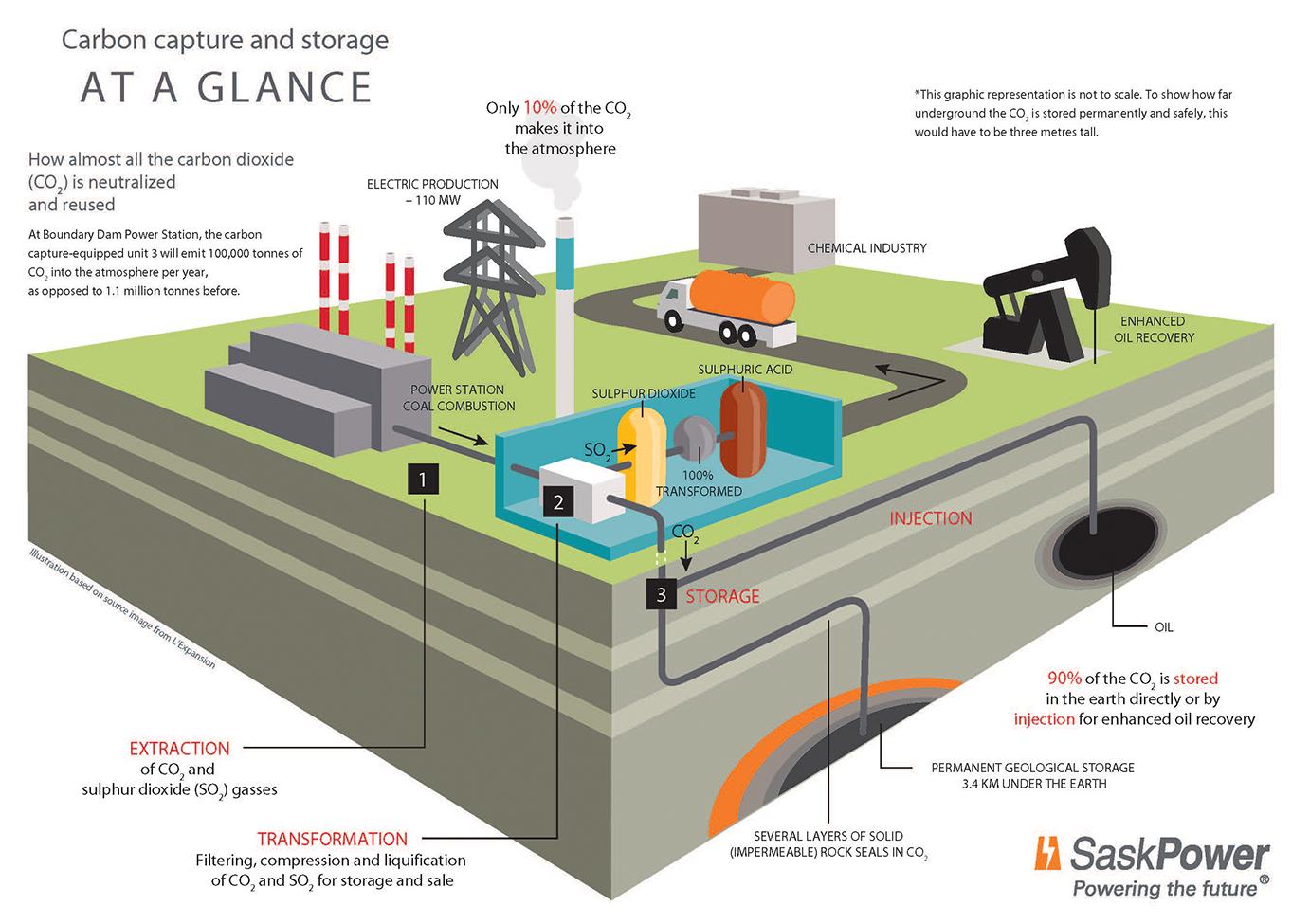The movement towards sustainable and green energy has become a global phenomenon. From solar power to electric cars, industries all across the world are making changes to help the environment. Fossil fuels like oil are notorious for releasing carbon and other harmful emissions — part of what is driving the movement towards sustainability. However, are there new ways that the oil industry could instead help the environment?
A process called carbon capture and sequestration (CCS) is helping the sector move towards reduced CO2 emissions. Yet will it be enough to keep up with the new changes? Experts are leaning into the necessity to take any steps that can reduce emissions.
What Is CCS?
Carbon dioxide is the leading greenhouse gas pollutant across the world. In fact, CO2 contributed 82% of all greenhouse gas emissions in the U.S. in 2017. This form of pollution speeds climate change, damaging living conditions for humans and animals on Earth. Since carbon emissions are harmful, you might be inclined to look to renewable energy sources as the solution.
However, CCS is stepping in as a primary solution to reduce carbon emissions effectively. CCS entails capturing CO2 at the source. Therefore, during production, workers can filter out the CO2 emissions before or after they burn the fuel. At power plants and factories, you’ll find the source of the majority of carbon emissions.
After the capturing comes transportation. Pipelines send the carbon far away from factories and societies, then it arrives at the third step — storage. Most companies store this carbon underground or potentially in the ocean at depths greater than four or five kilometers. In a secure facility, the emissions won’t return to the atmosphere.
Grabbing the gases before they can disperse into the atmosphere would reduce a significant amount of pollution since most of it comes from carbon. Thus, experts would focus on power plants that generate energy from fossil fuels like oil, coal and natural gas.
What are the current uses for this type of process, and will it affect the oil industry?
Current Uses of CCS
The majority of CCS works to store carbon emissions. However, it can lead to something bigger for the oil industry. The methods of storage entail two different processes, one that occurs after the carbon is released, and another that happens before.
The first process, pre-combustion carbon capture, suggests that experts would extract carbon before they burn fossil fuels. This method requires that the coal, oil or natural gas gets heated alongside pure oxygen leading to a mixture of hydrogen and carbon monoxide. Next comes a conversion. Through added steam, hydrogen emerges and mixes with a chemical called amine. It bonds to the CO2 emissions. With more heat, the two separate, and the CO2 rises to the top.
In the process that takes place after production, post-combustion carbon capture, a filter that acts as a solvent would remove the majority of emissions. It separates the CO2 from other greenhouse gases and transports it through pipelines into storage. Companies can also sell it for different forms of transportation, like shipping or trucking.
Why are these two forms important for oil? Post-combustion can help oil power plants during production more so than pre-combustion. Filtration is easier to install in older power plants as opposed to the chemical process for pre-combustion. On the other hand, pre-combustion, which captures more emissions than post-combustion, would be better for newer power plants.
However, both of them provide CO2, which is a necessary element for extracting oil, allowing the industry to profit from becoming more sustainable.

CCS, Oil & the Environment
You may be wondering if CCS is the best investment for the oil industry to make. Why not turn to sustainable energy instead? The truth is, oil isn’t going anywhere. In fact, oil is to remain the leading energy resource into 2050. With that in mind, many experts agree that mitigating the emissions and harm in the meantime will help.
Oil extraction can occur on land or in the ocean. It’s a process that involves pressurizing the oil under the Earth’s surface to the point where it shoots up for collection. In the past, workers used water to do this. However, they transitioned once they realized CO2 was more effective. Next came the global movement for sustainability, which is changing things for the industry.
Now, CCS is providing the CO2 without having to extract it and cause more pollution. If workers use the carbon that CCS stores, they can inject it into oil reserves, which makes extraction easier. This process also puts CO2 back into the layers of rocks that previously held the oil.
This use of CCS for extraction translates to the industry’s bottom line, too. CCS isn’t something new, but it is something that’s becoming less theoretical and more practical every day. The oil industry would be able to use the stored carbon for their extraction, which would mean fewer expenses from getting the gas elsewhere.
The societal pressure to move towards sustainability is one driving factor in making the switch to CCS carbon. Money is the other. Now, with reduced expenses, CCS isn’t just an idea, it’s a business, one that’s turning oil into a more sustainable resource.
A Sustainable Future
The process of carbon capture works. Certain projects could capture up to 90% of carbon emissions, which would drastically reduce pollution. However, it would need to be a global transition. Power plants and factories across the world would need to get on board and make the shift.
As a result, oil extraction and production could use CCS to become more sustainable. Many experts agree that this is a necessary step. Since oil doesn’t appear to be fading from popularity any time soon, making it more environmentally-friendly in the meantime is the best option.
It will need to overcome other concerns, as well. Will the CO2 ever leak in storage? Will it cause environmental risks during oil extraction? Will trucking and shipping cause counterbalancing CO2 emissions? The future holds obstacles.
CCS for oil will help. However, it is an added action that experts will need to implement alongside other sustainable practices. CCS alone won’t be enough to reduce pollution, but it might be enough to help the oil industry benefit the environment.
What do you think of the oil industry? Do you think they could help the environment? Let us know in the comments below or on Twitter, or Facebook. You can also comment on our MeWe page by joining the MeWe social network.
Last Updated on February 3, 2021.











